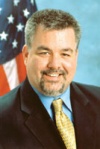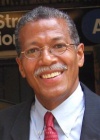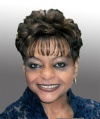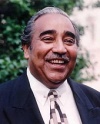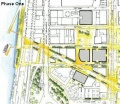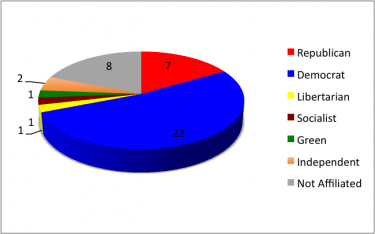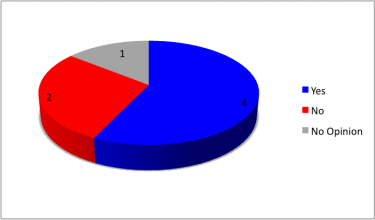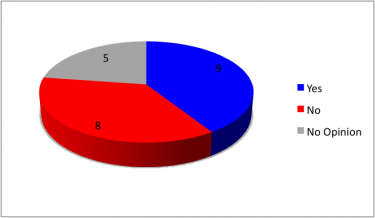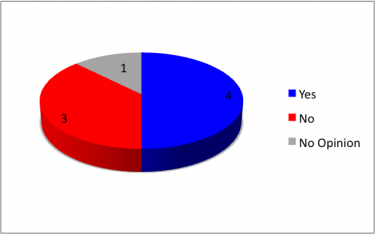From A Neighborhood in Transition
Morningside Heights is a part of the 15th Congressional District, which is currently represented by Congressman Charles B. Rangel. The 15th Congressional District also includes Harlem, Inwood, Marble Hill, Spanish Harlem, Washington Heights, and parts of the Upper West Side. Traditionally, the area of Morningside Heights has been heavily democratic, from its City Council Members to its Congresspersons. The community of Morningside Heights and surrounding areas has been dealing with the gentrification of its neighborhood, largely due in part to Columbia University's plans to expand its campus, which is already a dominant feature of the area. This issue will be further explored in an analysis of the political issues in the neighborhood.
Contents |
Representatives of Morningside Heights
Morningside Heights has been represented by various faces, backgrounds, and parties, but the dominance of the Democratic party remains relatively constant. The following are some current representatives of Morningside Heights:
State Assemblyman Daniel O'Donnell (D-69th Assembly District)
Elected to the 69th Assembly District in 2002 which includes Manhattan Valley, Morningside Heights, and the Upper West Side of Manhattan. O'Donnell is the first openly gay man in the New York State Assembly. He is the founding member of the NYC Chapter of Citizen Action and the Morningside Heights historic District Committee. He currently serves as the Chair of the Subcommittee on Criminal Procedures. His Standing Committee Assignments include: Codes, Education, Judiciary, Environmental Conservation, Arts and Tourism, and Oversight, Analysis & Investigation.
City Council Member Robert Jackson (D-District 7)
Elected to District 7 in 2002, which represents parts of Morningside Heights, Hamilton Heights, West Harlem, Washington Heights and Inwood. Jackson serves as Chair of the Education Committee and as a member of the Contracts; Finance; Housing & Buildings; Land use - Zoning & Franchises; Rules, Privileges & Elections; Sanitation & Solid Waste Management and Standards & Ethics Committees. He also is Co-Chair of the Council's Black, Latino & Asian Caucus.
City Council Member Inez Dickens (D-District 9)
Elected to District 9 in 2006, which encompasses Central Harlem, Morningside Heights, parts of the Upper West Side and part of East Harlem. She is the Majority Whip and Chair of the Standing Committee on Standards and Ethics. Additionally, councilwoman Dickens serves on the following committees: Cultural Affairs, Libraries & International Intergroup Relations; Governmental Operations; Health; Land Use; Rules, Privileges & Elections, and the Land Use Sub Committee on Planning, Dispositions & Concessions.
Congressman Charles B. Rangel (D-15th Congressional District)
Congressman Rangel began representing the 15th Congressional District is currently in his 20th term as a member of the House of Representatives starting in 1971 after succeeding Adam Clayton Powell, Jr. Rangel is also a founding member of the Congressional Black Caucus. He is chairman of the Ways and Means Committee, making him the first African American to receive that post. In addition, he serves on a number of committees and causes, some of which include the Progressive Caucus, Out-of-Iraq Caucus, Labor and Working Families Caucus, Real Estate Caucus, and 21st Century Health Care Caucus.
Important Issues
Gentrification
Over the years, the landscape of Morningside Heights has changed. As small businesses and areas considered historically important are changed or destroyed and replaced with chains and new bulidings, those who were once apart of the area find themselves pushed out by lack of affordability. The expansion of Columbia University is a prime example, and prime spear-header of this phenomenon in Morningside Heights that has numerous political implications.
For more on Gentrification, see main article Gentrification
Columbia Expansion
"What do we want? A Just Expansion! When do we want it? Now!" -Protestors from the Student Coalition on Expansion and Gentrification & Coalition to Preserve Community (SCEG), May 2, 2009
On Saturday, May 2nd, Columbia students and community members alike gathered in the quad of Columbia University's entrance on W. 116th and Broadway. All of these people had gathered on this day for one reason, and one reason only: to call attention to, and get people to rally against Columbia University's further expansion into Manhattanville. The ever gentrifiying area of Columbia University and its surrounding areas has been a source of contention for over a decade, as the history of small business and charming buildings community members once knew is paved over with new concrete and transformed into high-rises, food chains, and posh restaurants. The question at the heart of the issue is, Will the expansion hurt, or help the community?
The following are two points-of-view on the issue:
The Columbia University Argument
Columbia University believes that their expansion into Manhattanville will benefit the community in numerous ways *(Information taken from Columbia's Manhattanville site) :
1) Nearly 6,000 new University jobs with competitive health, educational, and retirement benefits.
2) An average of 1,200 construction-related jobs per year for the next quarter century.
3) More than $20 million in University funding to support affordable housing initiatives.
4) An additional $76 million in University funding to meet community needs.
5) Publicly accessible open spaces and improved, pedestrian-friendly streets—part of an environmentally sustainable urban design.
6) New commercial life, including local shopping, and dining, as well as a range of public amenities.
7) A permanent site for the new Columbia-assisted public secondary school for math, science, and engineering.
8) Teachers College-assisted K–8 public school in partnership with local community.
For more details on Columbia's plans, visit:
Columbia University, Manhattanville in West Harlem [1]
The SCEG & Coalition to Preserve Community Arguments
The major concerns that these two organizations have--one made up of Columbia students and the other with community residents--are:
1) Displacement of Manhattanville residents by housing destruction, and lack of affordability. Additionally, small businesses, such as restaurant Floridita, are being targeted to give up their ownership so that Columbia can continue its expansion plans; which include replacing these businesses with chains and higher end retailers.
2) Columbia's intention to use eminent domain to secure permission to take over the areas, which Columbia claims are owned by them and so they have the right to do with the area as they see fit, though ultimately they believe their actions will benefit the public.
3) The community would like public disclosure of Columbia's financial situation, and are concerned that Columbia may be seeking stimulus funds to fund their expansion.
4) Columbia University plans on building a bio lab, level 3 of 4. If built, residents of the area feel that there could be environmental health issues at stake, and feel especially so looking back at Columbia's "poor safety record" where in 2002 they were fined "$792,029 by the U.S. Environmental Protection agency for violations involving improper storage and disposal of toxic waste and faulty emergency plans."
For more details on the issues, visit:
Student Coalition on Expansion and Gentrification [2]
Coalition to Preserve Community [3]
Conclusion
Residents of Morningside Heights and visitors of Morningside Heights have varied opinions on the nature of Columbia's expansion in the neighborhood. On Saturday May 2nd, three students handed out surveys to 42 individuals, and of this sample 29 lived or worked in the Columbia area. We asked them for their political party affiliation and their feelings, if any, on Columbia expansion. Here were the results:
Overall, the issue of Columbia's expansion is a contentious one. Only time will tell whose voices are heard, and if there can be a compromised reached at all.
References
1. http://assembly.state.ny.us/mem/?ad=069&sh=bio
2. http://council.nyc.gov/d9/html/members/home.shtml
3. http://council.nyc.gov/d7/html/members/home.shtml
4. http://rangel.house.gov/biography.html
5. http://rangel.house.gov/committees.html
Go back to Politics, Economics, and History
Go back to Main Page
